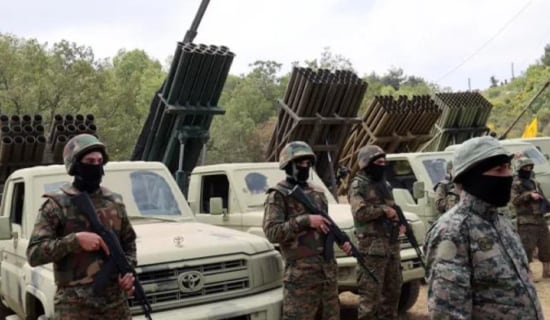The Muslim festival of Eid Al-Adha is customarily marked by slaughtering an animal and distributing its meat between family, friends, neighbors, and the poor. In an article published ahead of the holiday in the Egyptian daily Al-Masri Al-Yawm, titled "I Beg You, Please Prevent the Slaughtering in the Streets," feminist writer and journalist Iqbal Baraka urged the Egyptian Environment Ministry to ban the performance of these ritual slaughters in public places, as Saudi Arabia has already done. The custom of slaughtering the animals on the street, she wrote, traumatizes children, who generally love animals, and accustoms them to sights of cruelty and bloodshed. It also creates a hygiene and health hazard and harms Egypt's image as a civilized country.
The following are excerpts from her article:[1]

Iqbal Baraka (image: elfagr.com)
"I had hoped that Dr. Yasmin Fouad, who became minister of the environment two months ago, would launch her activity [as minister] by banning the slaughter of holiday sacrifices in the streets, designating this as a criminal offence and punishing the offenders. The sight of the flowing blood surely frightens the children, especially if they see it streaming from the neck of an animal which a moment ago was breathing, running around and braying. Young children's love for animals, and attachment to them, is well-known, so why do you cause them emotional anguish by [exposing them to] the sight of the slaughterer laying the helpless animal on the ground and then severing its neck from its body? There are many adults who cannot bear this sight.
"The [custom of] making a sacrifice is uncontested in the [Islamic] religion, [for Quran 2:108 says]: 'So pray to your Lord and make a sacrifice.' But it does not have to take place in the street, in front of buildings inhabited by adults and children, Egyptians and foreigners. This causes disgust and harms [our image as] a civilized country. Sometimes the slaughterers finish their task and then leave without bothering to clean the street of the flowing blood of the sacrifice, and the result is a feast for flies, [alley] cats and other stray animals in the city.
"The doctors in the Health Ministry's public health service must educate the public about the effect of this bad habit on the street, on the adults passing through it and on the innocent children playing in it.
"Letting our innocent children witness this harmful and uncivilized spectacle of the slaughterers [killing the animal], with their clothes, faces and hands all covered in blood and their clothes all ragged, may accustom [the children] to cruelty, bloodshed and crime – and the horrific crimes that some of our young people commit these days are enough for us.
"Realizing the disastrous effects of this harmful activity, Saudi Arabia banned the slaughter [of the animals] in the street already in 1988, and established the civilized Project for Utilization of Hajj Meat, [whose aim is to make the best use of the meat of the sacrifices] that pilgrims [to Mecca] are required to make, as part of which hundreds of thousands of cattle are slaughtered. To this end they set up three slaughterhouses that are open to pilgrims, as well as two closed slaughterhouses for sheep only. To make things easier for people wishing to make sacrifices, the [Saudis] allow these slaughterhouses to operate by proxy, so that the pilgrims can authorize the slaughterhouse supervising committee [to perform the slaughter on their behalf] by means of coupons distributed at many entrances [to the Mecca compound]. At the slaughterhouses, vets examine the animal before sacrifice, to make sure it is not diseased. After the slaughter is performed according to the rules of Islam, the meat is distributed among the poor of the [Mecca] compound and among charities, and [some of it] is distributed among the 23 Muslim countries. As for the sacrificed animal's skin and internal organs, they are sold and the proceeds are distributed among the poor of the [Mecca] compound once a year... I hope that [we Egyptians] will eliminate the sights of sheep being slaughtered on the sidewalks, which are common throughout the [Egyptian] republic...
"I wrote about this many times, but received no response from the ministers or [other] officials at the environment ministry, even though there is more [than one] woman among this ministry's top officials. I don't know if any of the ministers read [what I wrote], but is my request unreasonable or aberrant, or necessarily opposed to the religious customs? One last thing: must we appeal to Al-Azhar and call on it to issue an announcement banning Muslims from slaughtering [animals] outside the official slaughterhouses, as Saudi Arabia has done?"
[1] Al-Masri Al-Yawm (Egypt), August 22, 2018.








